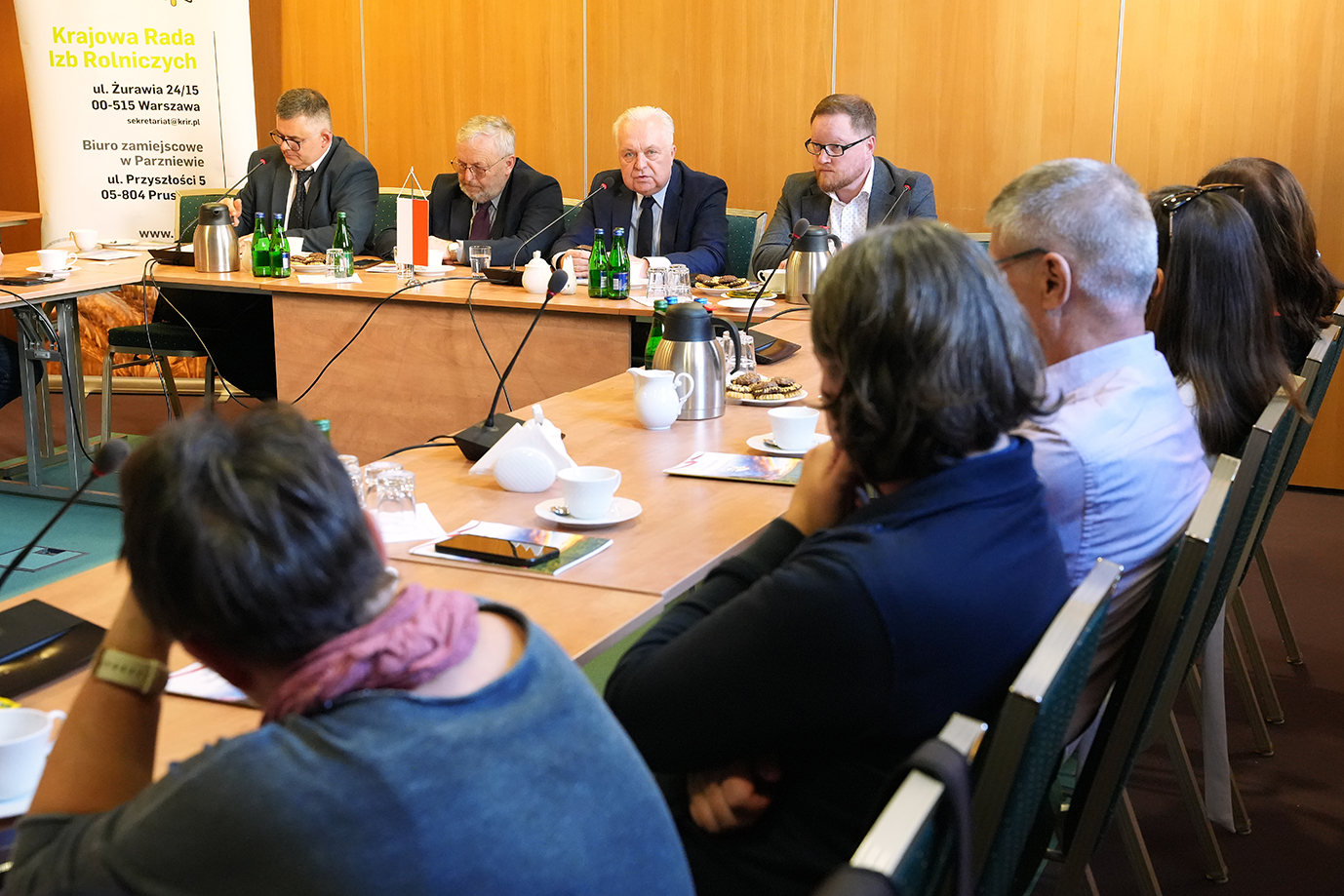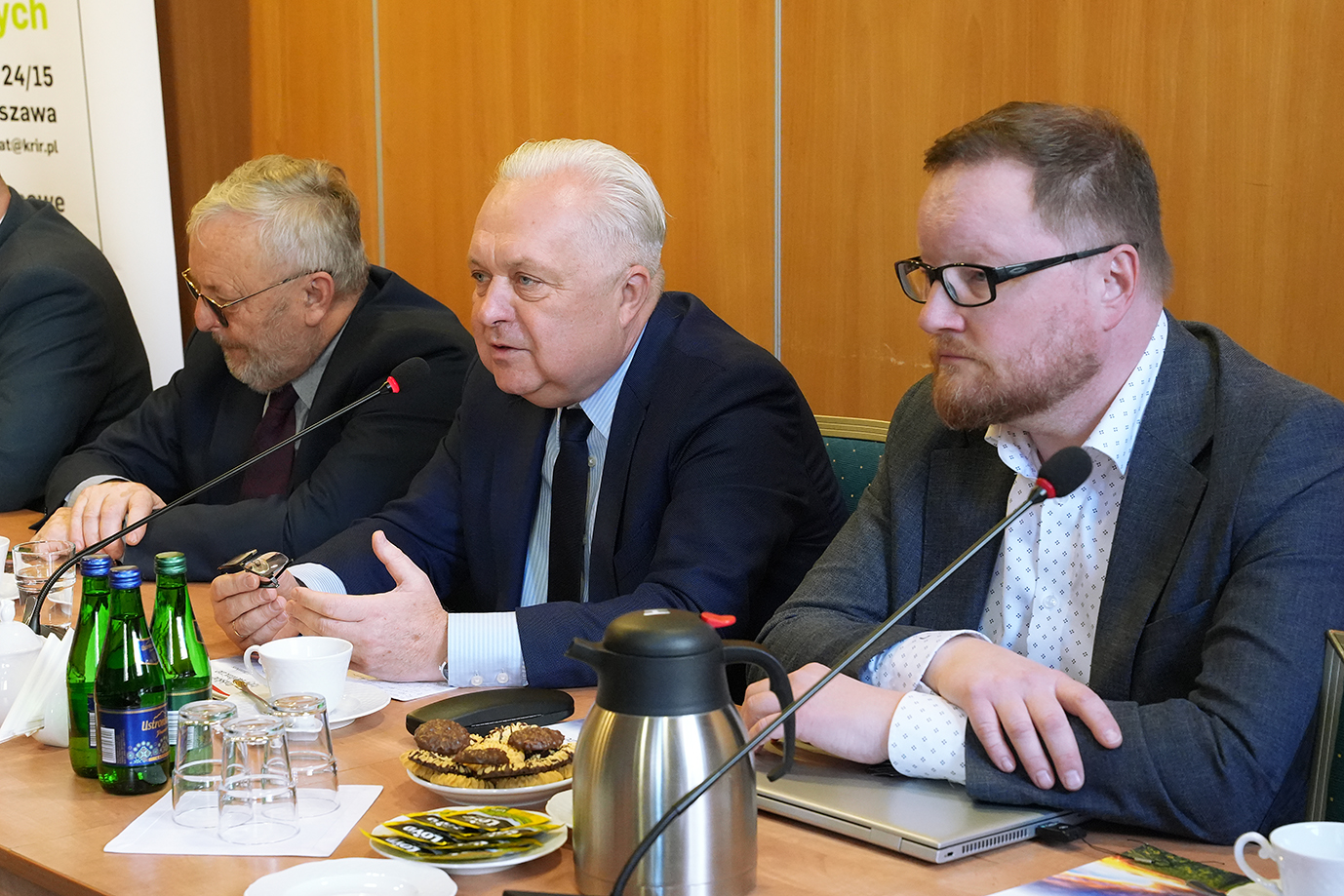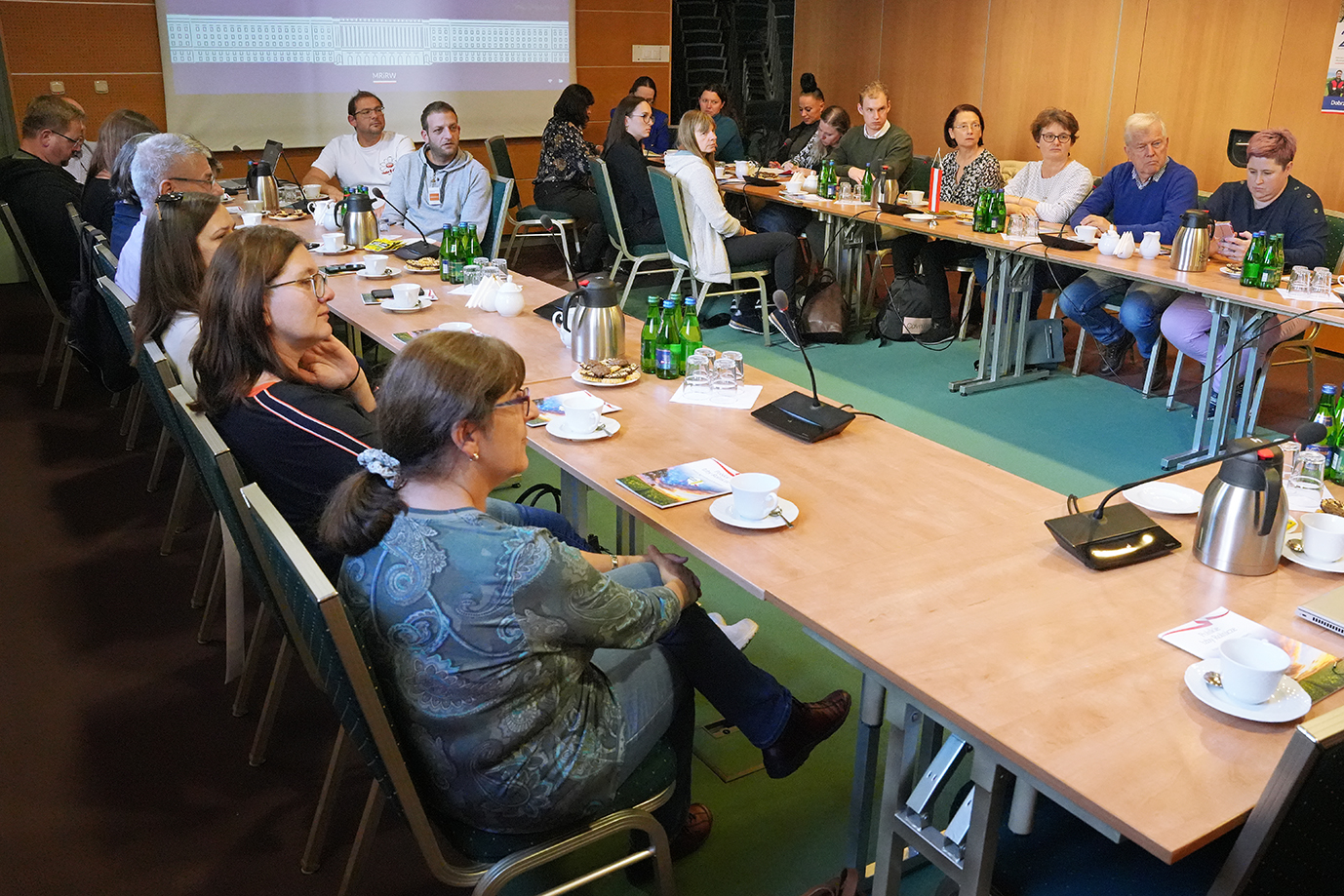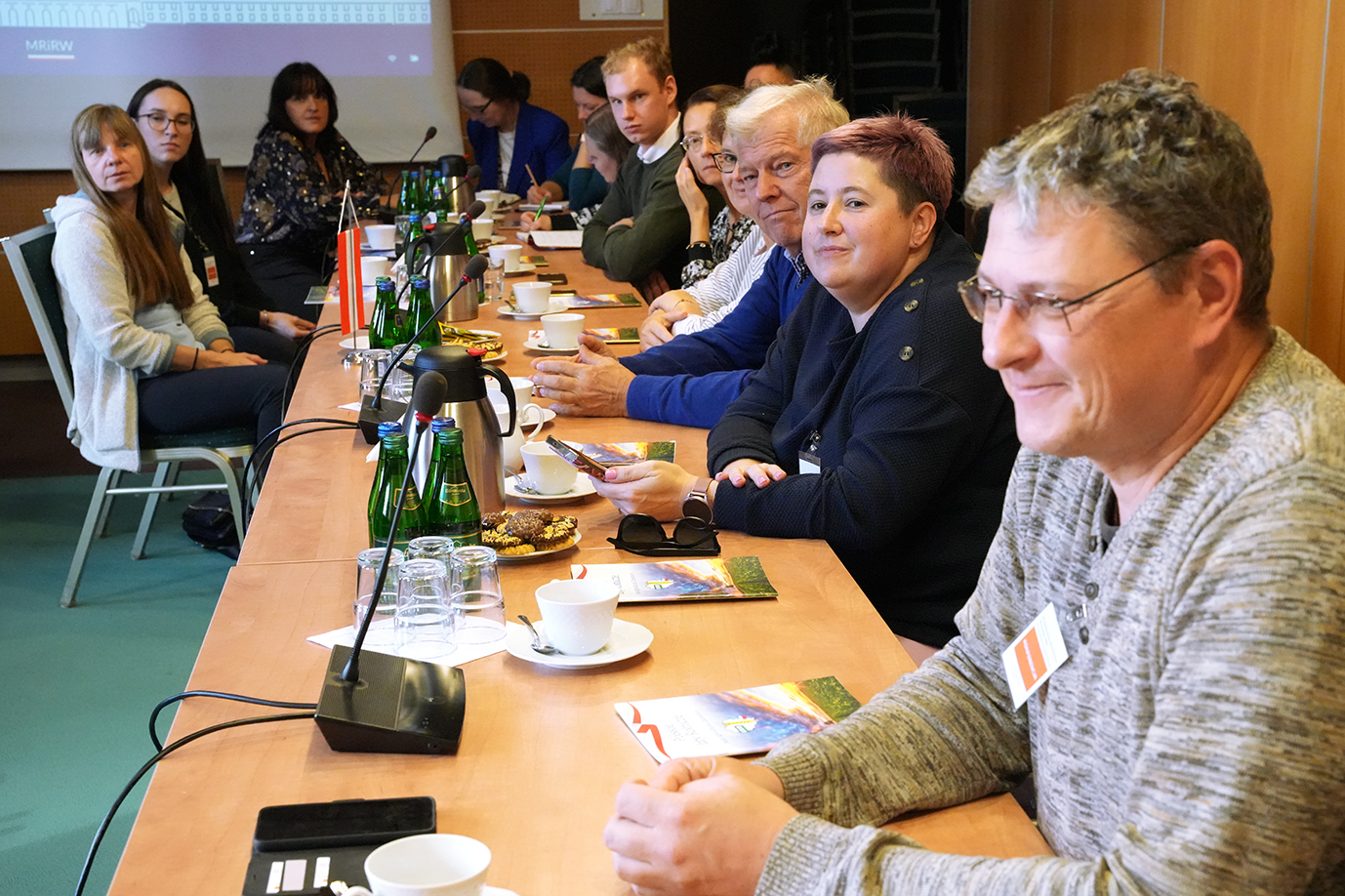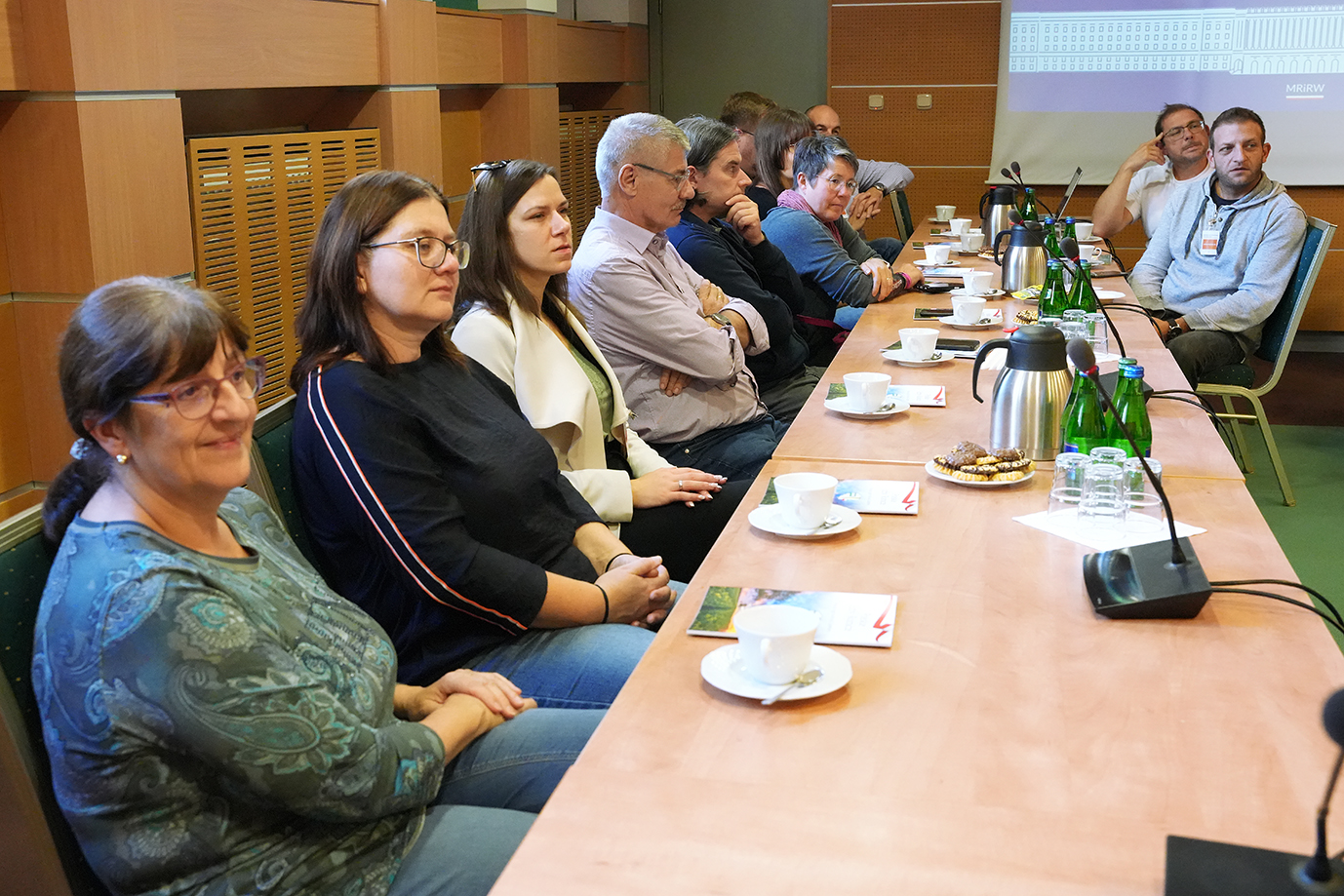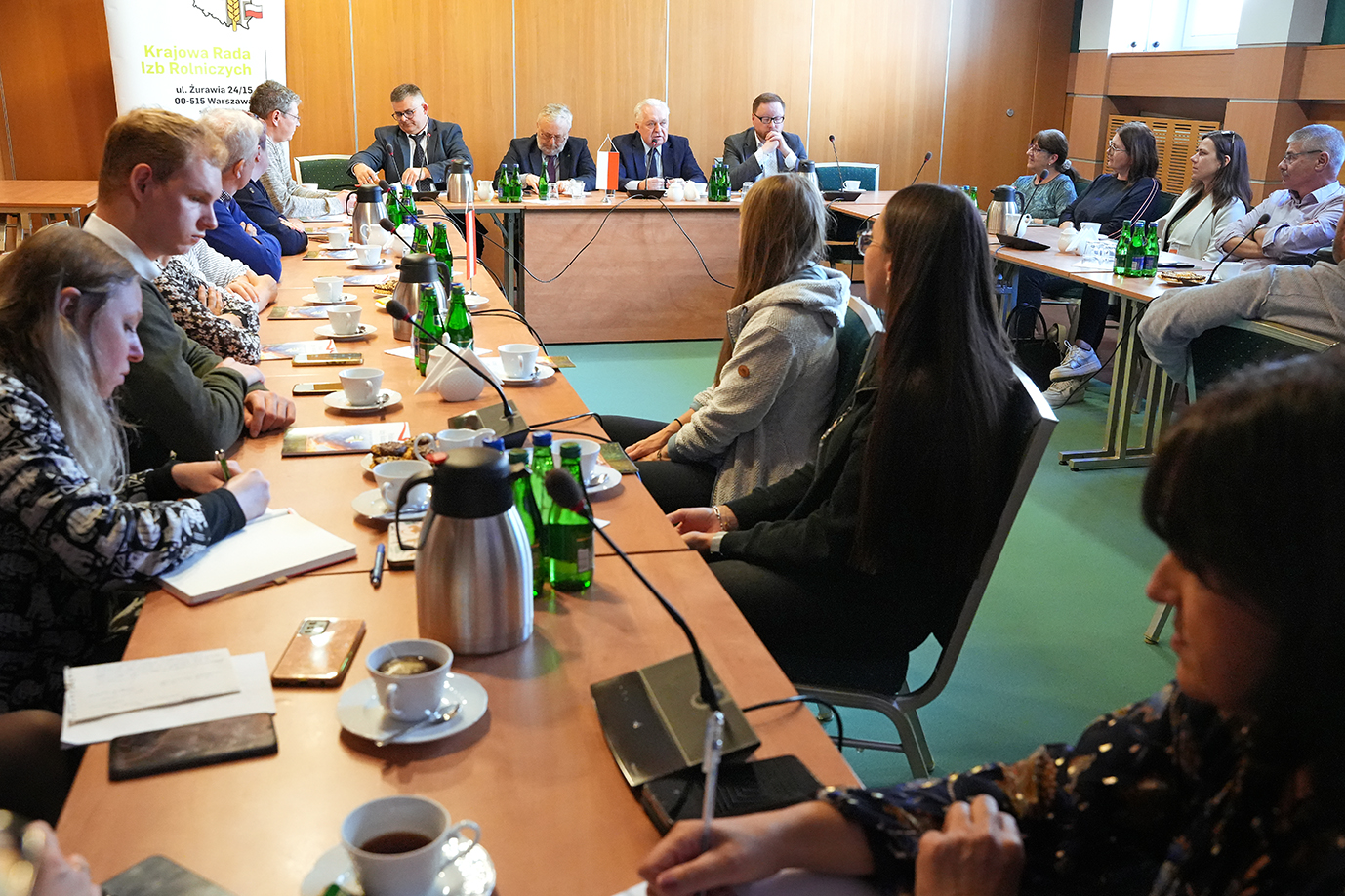Visit of Austrian Farmers
18.10.2024
State Secretary Jacek Czerniak participated today in a meeting between representatives of the National Council of Agricultural Chambers (KRIR) and a delegation of farmers from Austria. The purpose of the meeting was to exchange experiences and provide the Austrian guests with insights into the specifics, structure, and objectives of Polish agriculture. KRIR President Wiktor Szmulewicz was also present.

Presentation of Polish Agriculture and Agricultural Institutions
Deputy Minister Jacek Czerniak highlighted that the 20 years since Poland joined the European Union have marked a period of significant growth for Polish agriculture, which has become more innovative and competitive.
– ‘Today, Poland is a major producer and exporter of food. In 2023, our food exports reached 52 billion euros,’ noted the State Secretary.
Deputy Minister Czerniak introduced the Austrian guests to the characteristics of Polish agriculture, emphasising the dominance of small family farms. He also explained the structure of the Ministry of Agriculture and Rural Development (MARD) and the role of institutions that represent farmers’ interests in Poland and support them in applying for EU funding.
In response to questions from the Austrian representatives, the State Secretary clarified that the Agency for Restructuring and Modernisation of Agriculture (ARMA) is responsible for processing applications for EU support.
– ‘ARMA is the largest paying agency in Europe, consisting of 16 regional branches and 314 county offices, employing 11,500 people,’ said Deputy Minister Czerniak.
He also outlined the activities of key institutions associated with MARD to the Austrian delegation.
Poland’s Approach to the Green Deal and Plans for the EU Council Presidency
The Austrian delegation showed particular interest in Poland’s stance on the Green Deal and how Polish farmers perceive its objectives.
– ‘The Green Deal provokes strong emotions among farmers. We know that some of its provisions have led to protests by farmers not only in Poland but also in other European countries,’ remarked Deputy Minister Jacek Czerniak, adding that ensuring food security is a priority for the Polish government, equally important as military security.
– ‘Thanks to the determination of the Polish government and Minister Czesław Siekierski, we have managed to rationalise or defer some aspects of the Green Deal, while others remain under discussion. We intend to continue this dialogue during Poland’s Presidency of the EU Council starting from 1 January 2025,’ added the State Secretary.
Deputy Minister Czerniak stressed that the Polish Ministry of Agriculture supports providing incentives for farmers rather than imposing mandates.
– ‘The Polish side is in favour of dialogue when introducing new solutions at the EU level. It is important to consider that agriculture is highly diverse, not only between different countries but even within regions of individual countries,’ he emphasised.
Deputy Minister Czerniak also mentioned that during Poland’s Presidency of the EU Council, the country plans to participate in discussions on the future of the Common Agricultural Policy (CAP) after 2027 and the potential expansion of the Community to include new members, such as Ukraine.
Exchange of Experiences
– ‘I appreciate your interest in Polish agriculture. We face similar challenges,’ Deputy Minister Czerniak said to the Austrian guests.
The meeting concluded with an open discussion, providing participants with the opportunity to compare agricultural practices between the two countries, focusing on the best practices in both Poland and Austria that could serve as mutual inspiration.
At the end of the discussion, participants expressed a willingness to continue cooperation and exchange experiences, which could benefit both Polish and Austrian agriculture.

